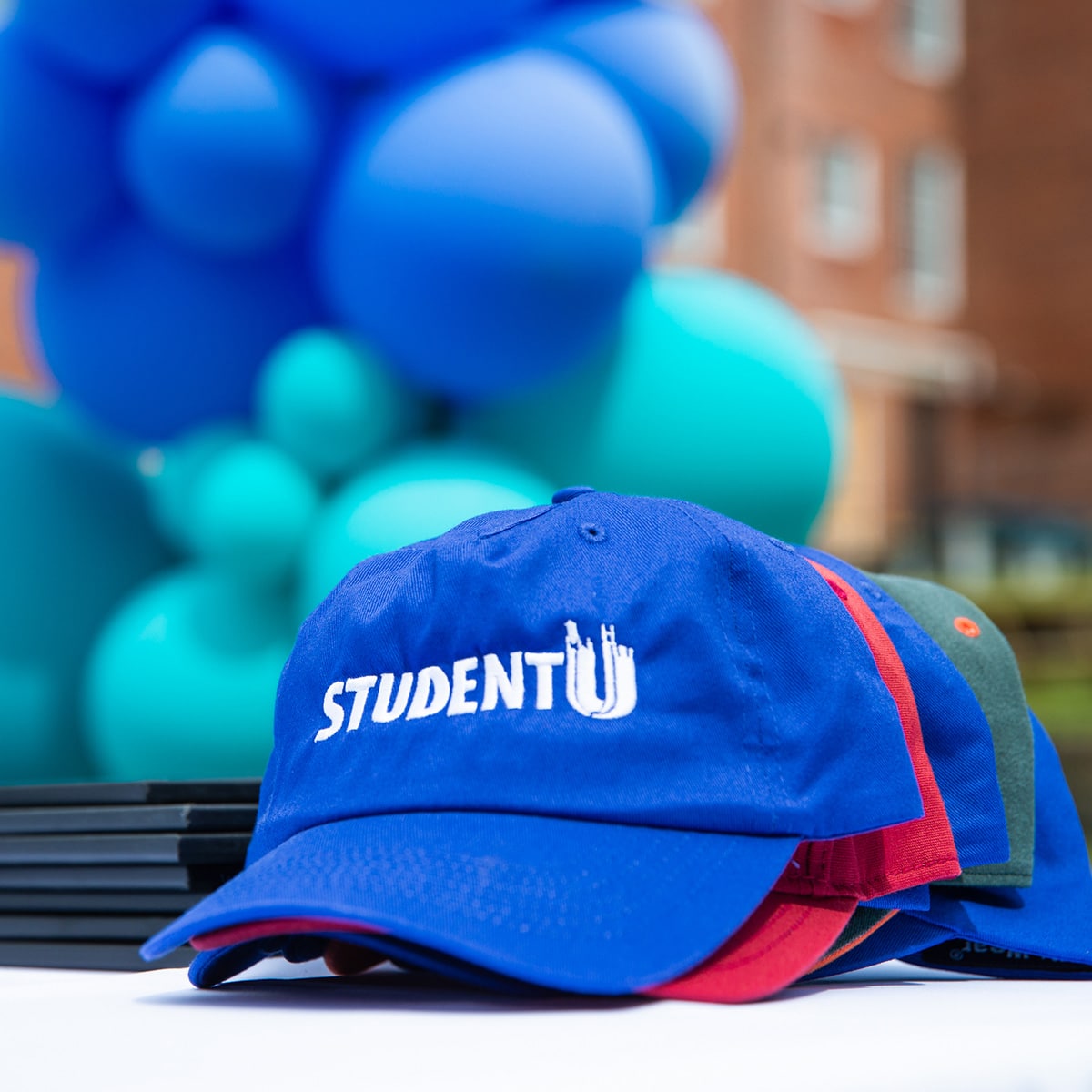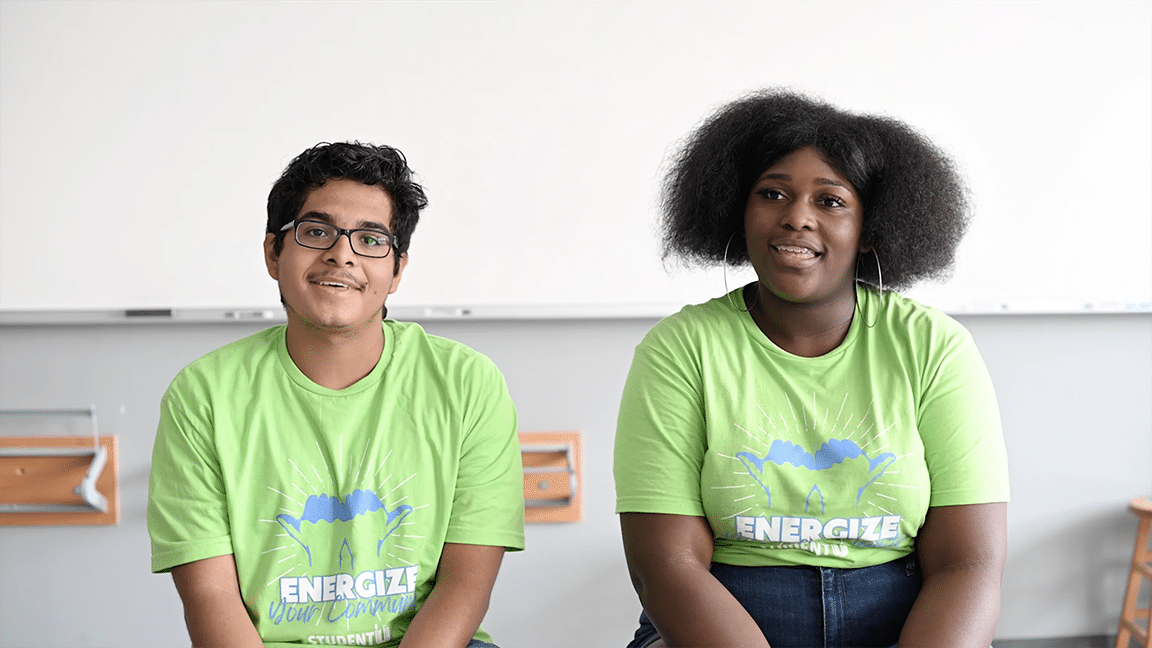
Welcome to the Youth Work 101 Series! Student U is starting this blog series to support youth work practitioners, educators, advocates for young people, and after-school professionals in their work by sharing what has worked for us and by offering free resources each month on a best practice. Click here to jump to our Growth Mindset PowerPoint resource for youth workers for this month.
My name is Connor Kirkpatrick and in addition to currently mentoring brilliant seventh graders in Student U’s afterschool program, I have worked with youth in many different out-of-school capacities. I wanted to start this blog series to share some of the most helpful tools that Student U has developed in its work to make Durham a place where all students succeed. These are techniques, strategies, and frameworks for working with young people that I wish I had incorporated a LOT earlier in my practice, and often still struggle to fully master.
Let’s be honest – working with young, developing humans is hard work! Just in the last month, I have had to navigate students stressed about their grades, a student dealing with the death of a close relative, students whispering about the latest drama, and an incident involving juice boxes that I would not like to discuss further. This work is not for the faint of heart, and some days it feels like we are in the newest Jurassic Park movie with the number of stressful adversities our students bring into our learning spaces. Queue a Jeff Goldbloom *phew!*
The goal of this blog is to spark conversations about what has worked for others in the field to help you develop your own practice of working with young people. Our youth look to us to mentor and guide them in how to develop life skills. To help support you, every month this blog will feature a Student U staff member as they share a best practice in working with young people, along with a free (FREE!) tangible resource to help you implement this technique yourself in your own practice.
To kick off our series, I am exploring one of the most useful frameworks I have found in working with my students – growth mindset. January is THE time to reset our mindsets and re-evaluate our goals and thinking patterns. So without further ado, let’s jump into why a growth mindset is one of the most effective tools in resetting you and your students’ thinking patterns in this new century.
Growth Mindset: What is it?
Growth Mindset is when people believe that their most basic abilities can be developed through dedication and hard work – brains and talent are just the starting point. In short, it is the belief that you can learn. A growth mindset is often contrasted to a fixed mindset: the belief that you are incapable of further growth or of learning more due to your innate learning ability. ¹
Why use Growth Mindset Thinking?
Research shows that the brain is wildly malleable, meaning that our brain is constantly changing and able to take in new information. That’s empowering to know that we will always be learning and changing! But what makes this information powerful is when students know and understand that they are capable of always learning. Students who exhibit a growth mindset are more likely to pursue challenges and internalize an identity as a learner who can achieve greatness. Having this mindset can transform a student’s perception of themselves.
Growth mindset also challenges the idea that intelligence is something you’re born with, but rather something that you gain with practice and hard work. Many of our students believe they can or can not do something simply based on their current ability, and sometimes they have a hard time breaking their fixed mindsets. Our students live in a world with systems that are set up to limit our students’ success simply because of the color of their skin, where they live, and how much money they make. Thus it is critical that students know they can actually achieve beyond their current reality. That’s what makes Growth Mindset powerful – it shifts student thinking from focusing on what they can’t do to what they could be able to do if they devoted time and effort to it (and not just in academics, but in life!).
With a growth mindset, the limit to what you can do, learn, and be does not exist. We can only dream fearlessly when we think outside our perceived limitations. So to sum – here’s a brief overview of fixed mindset characteristics vs. growth mindset characteristics

How to Use Growth Mindset Thinking
The first step to implementing a Growth Mindset is to start noticing what your students are saying and identifying areas in which students exhibit a fixed mindset. I frequently hear “I’m just bad at math,” “This is too hard for me,” “I can’t do this,” and the more recent “Y’all doin’ too much!” in response to assignments in which students are asked to think critically. This is a normal response to encountering a concept you are unfamiliar with, and identifying those responses is half the battle.
Once you start identifying fixed mindset comments, you can begin to narrate a counter approach to activities using a Growth Mindset. When a student comments “I’m bad at math,” refocus them with “Actually, I’ve seen you do great work in math and we’re going to persevere through this concept!” See the Drake meme below if you’d like some gestures to act out while you deliver this comeback.
Other things you can do to start a culture of growth mindset with your students is having an actual conversation about growth mindset with them! Here are some questions to help you get started:
- What did you do today that made you think hard?
- What happened today that made you keep on going?
- What can you learn from this?
- What mistake did you make that taught you something?
- What did you try hard at today?
- What strategy are you going to try now?
- What will you do to challenge yourself today?
- What will you do to improve your work?
- What will you do to improve your talent?
- What will you do to solve this problem?
In the “Further Reading” section below, there are online lessons on Growth Mindset developed by Khan Academy FOR students that you can explore in your own learning space.
A Quick Note on Praising Students
It can be dangerous to praise a student saying “You’re so good at math” or “You’re so smart.” The problem here is this praise is also not process focused and encourages a fixed mindset because they think they no longer need to develop or it can instill a false sense of confidence in a student that may not have actually mastered a concept yet. More motivating praise stays focused on the process of learning and acknowledges effort. A better way to praise a student is to tell them “I admire how you worked hard to get that answer.”
Resource:
That’s a good beginning overview of Growth Mindset! This month, we are offering a Powerpoint as a resource for developing a workshop to deliver to your students, as well as an accompanying worksheet. If you want to facilitate a training on Growth Mindset to educators or students, this is a great resource you can adapt to your needs.
Download Our Free Promoting Growth Mindset TrainingSpecial thanks to Michelle Norwood, who created the presentation on growth mindset included extensive notes in the presentation to help others facilitate this training.
Further Reading:
- Carol Dweck’s book, Growth Mindset. This is where the idea first came from!
- The Power of Belief – Hear Carol Dweck unpack Growth Mindset in a quick animated video
- Khan Academy – You Can Learn Anything – Kahn Academy created an online curriculum to help you walk students through exploring Growth Mindset!
- John Legend: Success through effort – Hear John Legend talks about how he developed a Growth Mindset.
Later this month we are going to introduce Student U’s classroom culture framework: Restorative Justice. I’ll be inviting Middle School Program Coordinator April Warren to speak more about Restorative Justice. See you then!
—
Donate to Student U and keep posts like this one coming.
Subscribe to this blog by entering your email to download the resource above.
¹ The terms growth mindset and fixed mindset were coined by social psychology researcher Carol Dweck in her 2006 book, Mindset: The New New Psychology.










